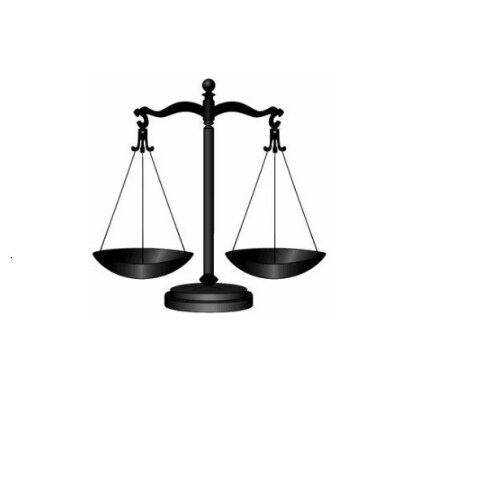Best Military Law Lawyers in Port Harcourt
Share your needs with us, get contacted by law firms.
Free. Takes 2 min.
List of the best lawyers in Port Harcourt, Nigeria
About Military Law in Port Harcourt, Nigeria
Military Law in Port Harcourt, Nigeria, encompasses a specialized legal framework that governs the conduct of armed forces personnel. It combines aspects of national defense law, including regulations and statutes that apply specifically to military members. In Port Harcourt, as in the rest of Nigeria, Military Law is heavily influenced by the Nigerian Armed Forces Act, which outlines the rights, obligations, and disciplinary measures applicable to military personnel. Given Port Harcourt's strategic importance and role within the region, understanding local Military Law is crucial for armed forces members stationed or residing here.
Why You May Need a Lawyer
There are several circumstances in which individuals might seek legal counsel related to Military Law in Port Harcourt:
- Facing disciplinary actions or court-martials within the military context.
- Issues related to military contracts and service terms.
- Claims involving military pensions or benefits.
- Cases of unlawful discharge or dismissal from military service.
- Legal challenges relating to human rights violations or conduct during military operations.
- Navigation of military justice procedures and appeals.
- Domestic issues that intersect with military responsibilities, such as military divorce cases.
Local Laws Overview
Port Harcourt, like other Nigerian cities, is subject to national military statutes, primarily regulated by the Nigerian Armed Forces Act. Key local laws include:
- Nigerian Armed Forces Act: Acts as the primary legislative document governing military conduct.
- The Constitution of Nigeria: Outlines the broader legal framework within which the military operates, including fundamental rights that may apply to military personnel.
- Regional Security and Military Protocols: Particularly important given Port Harcourt's proximity to strategic oil fields and its significance in regional security.
It is essential for military personnel and those interacting with the military apparatus to understand these legal touchpoints to navigate potential legal issues effectively.
Frequently Asked Questions
1. What is military law?
Military law is a body of laws and rules that governs armed forces members' conduct and operations. It includes both statutory laws and military regulations specific to service branches.
2. Who enforces military law in Port Harcourt?
In Port Harcourt, military law is enforced by military police and other military justice bodies, with oversight and legal processes guided by frameworks like the Nigerian Armed Forces Act.
3. What legal rights do military personnel have?
Military personnel have rights protected under the Constitution of Nigeria and specific military regulations, including the right to a fair trial, the right to legal representation, and protection against unlawful treatment.
4. How can I challenge a military court-martial?
You can challenge a military court-martial by appealing the decision through the appropriate military justice system channels. It is advised to consult with a lawyer experienced in military law for guidance.
5. Can military personnel face civilian criminal charges?
Yes, military personnel can be subject to civilian criminal charges if they commit offenses outside their military duties. Such cases might run parallel to military proceedings.
6. What should I do if I face unjust military disciplinary action?
If you believe you are subject to unjust disciplinary action, seek guidance from a military lawyer who can help review the legality of the procedures and represent you in disputes.
7. Are there special considerations for military divorce cases?
Military divorce cases may require additional considerations, such as understanding military benefits division and the impact of service commitments on child custody arrangements.
8. How are military pensions handled in Port Harcourt?
Military pensions are managed according to the regulations established by relevant military authorities and pensions administration bodies, ensuring qualifying members receive their benefits as determined by their service records.
9. Can I sue the military in Nigeria?
Suing the military can be legally complex and often requires alignment with specific legal protocols. Consulting with a legal expert experienced in military and governmental law is essential.
10. How does military law address human rights violations?
Human rights violations by military personnel are addressed within military courts under high scrutiny, often involving broader legal accountability frameworks relevant to Nigeria's commitments to international human rights conventions.
Additional Resources
If seeking legal advice or more information about Military Law in Port Harcourt, consider these resources:
- Nigerian Bar Association: Offers legal resources and listings of specialized lawyers in Military Law.
- Ministry of Defense: Provides policy guidance and factual information specific to military operations and regulations.
- Regional Military Legal Offices: Offer preliminary guidance and legal assistance to service members.
- Human Rights Organizations: Can provide resources and advocacy in cases involving human rights concerns.
Next Steps
If you require legal assistance in Military Law in Port Harcourt, consider taking the following steps:
- Gather all relevant documents and information about your case or legal inquiry.
- Consult with a legal expert specializing in Military Law for personalized advice.
- Visit local legal aid offices or military legal desks for guidance.
- Ensure any legal counsel you engage is accredited and experienced in handling military-related matters.
- Prepare any questions you might have to make the most of consultations with legal practitioners.
Taking these actionable steps can aid in effectively addressing your legal needs under Military Law in Port Harcourt.
Lawzana helps you find the best lawyers and law firms in Port Harcourt through a curated and pre-screened list of qualified legal professionals. Our platform offers rankings and detailed profiles of attorneys and law firms, allowing you to compare based on practice areas, including Military Law, experience, and client feedback.
Each profile includes a description of the firm's areas of practice, client reviews, team members and partners, year of establishment, spoken languages, office locations, contact information, social media presence, and any published articles or resources. Most firms on our platform speak English and are experienced in both local and international legal matters.
Get a quote from top-rated law firms in Port Harcourt, Nigeria — quickly, securely, and without unnecessary hassle.
Disclaimer:
The information provided on this page is for general informational purposes only and does not constitute legal advice. While we strive to ensure the accuracy and relevance of the content, legal information may change over time, and interpretations of the law can vary. You should always consult with a qualified legal professional for advice specific to your situation.
We disclaim all liability for actions taken or not taken based on the content of this page. If you believe any information is incorrect or outdated, please contact us, and we will review and update it where appropriate.










